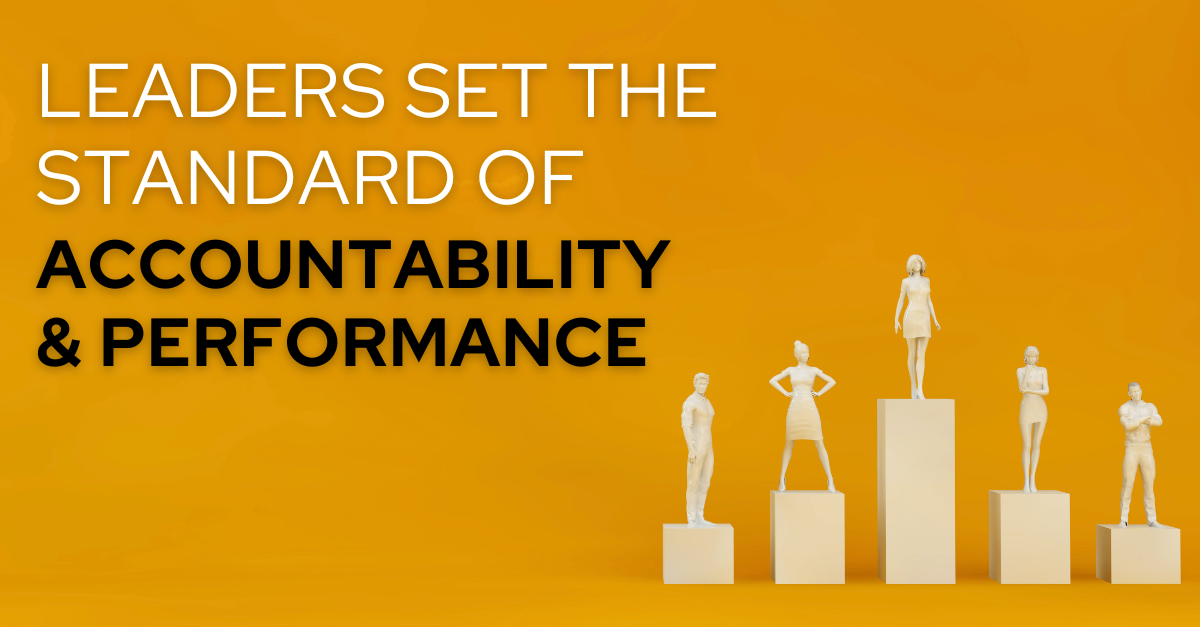When you look at failed relationships—be they business, personal or otherwise—you will almost always find they have at least one thing in common: unmet needs and expectations. Intuitively, we all know this. But when was the last time you asked any of your important relationships to come to a shared understanding of what you need and expect from each other?
“We don’t tell people what we expect from them, because we don’t think we need to.” writes Shari Harley in her best-selling book How to Say Anything to Anyone. “We assume people will do things the same way we do, such as be on time for appointments, pay their fair share in a restaurant, and tell us in advance if they’re going to miss a deadline—because that’s what we do.”
But other people don’t always do things the way we do. Not discussing and agreeing to what we expect of the other is the root of most interpersonal conflict and failed relationships.
Begin Every Important Relationship By Setting Expectations
Harley argues that if you want to work well with people, you need to set expectations at the outset of every important relationship. “Ask more and assume less.”
Harley’s advice is sorely needed in today’s highly interdependent workplaces. Research conducted by the Gallup organization revealed that only about half of employees know what is expected of them at work. That’s a pretty startling finding, especially considering the researchers concluded that setting clear expectations may be the “most foundational element of employee engagement” and “a manager’s most basic responsibility.”
[bctt tweet=”Setting expectations is a manager’s most basic responsibility” username=”availleadership”]
Likewise, an analysis of mentorship programs concluded that most mentorship relationships fade away within a few months because both parties waited for the other to tell them what they should do.
Setting expectations isn’t only the most basic responsibility of managers, it is the most basic responsibility of every person who wants to have a good relationship with a new boss, staff member, co-worker, project team member, mentor, volunteer committee member, and any personal relationship. This applies to any potential long-term relationship where each party needs something from the other to achieve their goals.
It never ceases to amaze me how often a manager, project team leader, or chair of a committee complains to me that someone on their team is not pulling their weight, when I know that the manager has never clearly articulated their performance expectations. When I mention that fact, their response is often “They should already know that at their level. I shouldn’t have to tell them.” In other words, they are failing because they are an idiot.
Just because someone hasn’t had the same experiences you have, and can’t read your mind, doesn’t make them an idiot.
Example Expectations to Discuss
Most people probably aren’t used to setting expectations at the outset of relationships, so you’ll likely have to suggest it. You might say something like:
“I want to have a good relationship with you and accomplish great things together. I also want to make sure I’m giving you what you need from me for you to be successful and enjoy your work. Would you be willing to meet with me to set out some basic expectations and guidelines for our relationship?”
Here is a list of topics you may want to consider addressing with your important relationships to mutually agree on the standard operating procedures of your relationship.
- Purpose: What do we want to accomplish through this relationship? What does success look like for each of us?
- Quality Standards: What does good work look like? Let’s share some examples of good quality and poor quality work.
- Performance Expectations: What are the most important things you need from me, and I need from you, to be successful? (For a gold standard example of manager / employee performance expectations, check out The Definitive Guide to Enlightened Performance Management.) How often should we revisit these performance expectations to make sure they are still applicable?
- Meeting Schedule: How often will we meet? What should the meeting agenda look like? How often would it be acceptable to reschedule? What would our expectations be if either of us is late?
- Communication Method: What’s the best way to get in touch with you? Is it ever okay to contact you after business hours? If so, how should I contact you?
- Assessment: How will we measure our success (metrics, milestones, surveys)? How often will we meet to review our goals and key performance indicators and to make course corrections when required?
- Conflict: When we disagree, how will we resolve our differences?
- Consequences: What happens if we fail to meet our commitments to each other or do not achieve our shared goals?
- Pet Peeves: What are some of your pet peeves I should be aware of?
- Conclusion: When will this relationship end? When should we discuss how well this relationship is working and whether it makes sense for this relationship to continue?
The topics you’ll want to discuss will depend on the nature of the relationship.
Note: revisiting performance expectations and assessing goals and metrics doesn’t necessarily mean extra meetings. Those items can be addressed through the regular meeting schedule at various times of the year. This process is described in The Definitive Guide to Enlightened Performance Management.
The Essential Performance Expectation: Feedback
Even if you do none of the above, there is one thing you can do to dramatically improve every important relationship in your life: invite your important relationships to provide you with feedback. We all have things we’d like to say to our friends, family, and coworkers, but in many cases, we don’t give them helpful feedback because we are afraid that they don’t want to hear it. Perhaps many of them don’t. But that’s not you. If you are reading this, then you are looking for tips to be the best you can be. Receiving a regular stream of feedback from those around us is essential to becoming our best selves and having great relationships.
“Feedback is the breakfast of Champions” – Ken Blanchard
In the article entitled How To Cure a Passive-Aggressive Culture, I show how passive aggressive behaviour (office politics) is triggered when people don’t feel like they can be frank with you. Office politics, and what is often labeled “poor teamwork,” essentially disappears when everybody feels comfortable giving each other feedback. The first step to making others feel comfortable giving you feedback is to specifically ask for it. (See 10 Practices That Will Make Others Want Your Feedback for the next steps.)
Here is an example of how you might invite your important relationships to provide you with feedback.
“Over the course of our relationship I am probably going to do things every once in a while that bother you. Will you do me a favour and let me know when I do? I’d like the opportunity to resolve any potential friction points with you before they become a problem, and I promise I’ll take your feedback graciously.”
Setting Expectations Improves Accountability
Accountability is really about getting the right results. I haven’t met one manager who doesn’t want to get the right results more consistently than they are now. In the connected, interdependent world we live in, getting the right results depends on good working relationships. Good working relationships begin with setting clear goals and expectations.
If you want to get the right results more often, set your important relationships up for success by setting clear expectations today.
______________________________________________________________________________________
For more information on this topic check out our Creating Accountability Workshop Series.







4 Responses
Excellent Article Michael, keep them comin my team loves when I share things like this with them… great feedback and they have some new tools for their leadership tool kits.
Thanks very much Kim for the feedback! Glad you and your team are finding the articles useful.
HI Michael,
Thanks for this article. I really find this very enlightening. Sometimes personal relationships is harder to manage than professional/work related. In the workplace, you can set expectations and limits at the onset of the transactions. In personal life, if you give expectations and boundaries and feedback as well, the other party seemed offended. Especially in family/friends conversation, when you tried to set limit they feel you are treating them as client not friend or family members. I think I still have to learn to strategize my mode of communicating so that I get the results.
Reading your articles have given me a lot to think about. Thank you so much.
Yes Au Lucas, it can seem like it might be more challenging with family and friends – relationships that you’ve had for a while. In those cases, I usually just invite them to provide me with some feedback anytime I do anything that bothers them.
Setting agreed to expectations is easier for new relationships… and I think it can work equally well with non-business relationships if it’s done at the outset of the relationship.